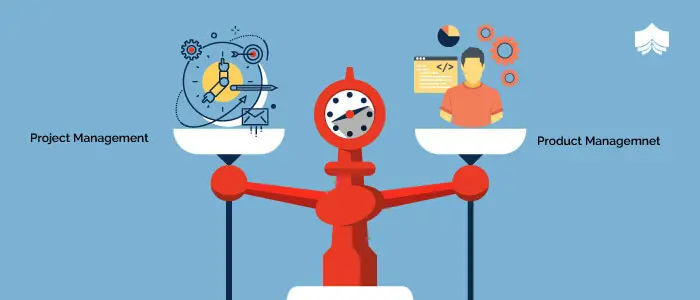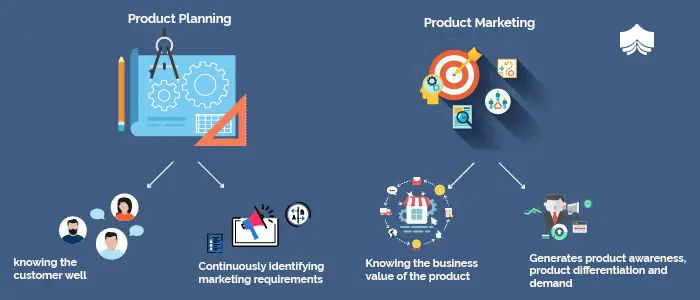- Blog Categories
- Project Management
- Agile Management
- IT Service Management
- Cloud Computing
- Business Management
- Business Intelligence
- Quality Engineer
- Cyber Security
- Career
- Big Data
- Programming
- Most Popular Blogs
- PMP Exam Schedule for 2024: Check PMP Exam Date
- Top 60+ PMP Exam Questions and Answers for 2024
- PMP Cheat Sheet and PMP Formulas To Use in 2024
- What is PMP Process? A Complete List of 49 Processes of PMP
- Top 15+ Project Management Case Studies with Examples 2024
- Top Picks by Authors
- Top 170 Project Management Research Topics
- What is Effective Communication: Definition
- How to Create a Project Plan in Excel in 2024?
- PMP Certification Exam Eligibility in 2024 [A Complete Checklist]
- PMP Certification Fees - All Aspects of PMP Certification Fee
- Most Popular Blogs
- CSM vs PSM: Which Certification to Choose in 2024?
- How Much Does Scrum Master Certification Cost in 2024?
- CSPO vs PSPO Certification: What to Choose in 2024?
- 8 Best Scrum Master Certifications to Pursue in 2024
- Safe Agilist Exam: A Complete Study Guide 2024
- Top Picks by Authors
- SAFe vs Agile: Difference Between Scaled Agile and Agile
- Top 21 Scrum Best Practices for Efficient Agile Workflow
- 30 User Story Examples and Templates to Use in 2024
- State of Agile: Things You Need to Know
- Top 24 Career Benefits of a Certifed Scrum Master
- Most Popular Blogs
- ITIL Certification Cost in 2024 [Exam Fee & Other Expenses]
- Top 17 Required Skills for System Administrator in 2024
- How Effective Is Itil Certification for a Job Switch?
- IT Service Management (ITSM) Role and Responsibilities
- Top 25 Service Based Companies in India in 2024
- Top Picks by Authors
- What is Escalation Matrix & How Does It Work? [Types, Process]
- ITIL Service Operation: Phases, Functions, Best Practices
- 10 Best Facility Management Software in 2024
- What is Service Request Management in ITIL? Example, Steps, Tips
- An Introduction To ITIL® Exam
- Most Popular Blogs
- A Complete AWS Cheat Sheet: Important Topics Covered
- Top AWS Solution Architect Projects in 2024
- 15 Best Azure Certifications 2024: Which one to Choose?
- Top 22 Cloud Computing Project Ideas in 2024 [Source Code]
- How to Become an Azure Data Engineer? 2024 Roadmap
- Top Picks by Authors
- Top 40 IoT Project Ideas and Topics in 2024 [Source Code]
- The Future of AWS: Top Trends & Predictions in 2024
- AWS Solutions Architect vs AWS Developer [Key Differences]
- Top 20 Azure Data Engineering Projects in 2024 [Source Code]
- 25 Best Cloud Computing Tools in 2024
- Most Popular Blogs
- Company Analysis Report: Examples, Templates, Components
- 400 Trending Business Management Research Topics
- Business Analysis Body of Knowledge (BABOK): Guide
- ECBA Certification: Is it Worth it?
- How to Become Business Analyst in 2024? Step-by-Step
- Top Picks by Authors
- Top 20 Business Analytics Project in 2024 [With Source Code]
- ECBA Certification Cost Across Countries
- Top 9 Free Business Requirements Document (BRD) Templates
- Business Analyst Job Description in 2024 [Key Responsibility]
- Business Analysis Framework: Elements, Process, Techniques
- Most Popular Blogs
- Best Career options after BA [2024]
- Top Career Options after BCom to Know in 2024
- Top 10 Power Bi Books of 2024 [Beginners to Experienced]
- Power BI Skills in Demand: How to Stand Out in the Job Market
- Top 15 Power BI Project Ideas
- Top Picks by Authors
- 10 Limitations of Power BI: You Must Know in 2024
- Top 45 Career Options After BBA in 2024 [With Salary]
- Top Power BI Dashboard Templates of 2024
- What is Power BI Used For - Practical Applications Of Power BI
- SSRS Vs Power BI - What are the Key Differences?
- Most Popular Blogs
- Data Collection Plan For Six Sigma: How to Create One?
- Quality Engineer Resume for 2024 [Examples + Tips]
- 20 Best Quality Management Certifications That Pay Well in 2024
- Six Sigma in Operations Management [A Brief Introduction]
- Top Picks by Authors
- Six Sigma Green Belt vs PMP: What's the Difference
- Quality Management: Definition, Importance, Components
- Adding Green Belt Certifications to Your Resume
- Six Sigma Green Belt in Healthcare: Concepts, Benefits and Examples
- Most Popular Blogs
- Latest CISSP Exam Dumps of 2024 [Free CISSP Dumps]
- CISSP vs Security+ Certifications: Which is Best in 2024?
- Best CISSP Study Guides for 2024 + CISSP Study Plan
- How to Become an Ethical Hacker in 2024?
- Top Picks by Authors
- CISSP vs Master's Degree: Which One to Choose in 2024?
- CISSP Endorsement Process: Requirements & Example
- OSCP vs CISSP | Top Cybersecurity Certifications
- How to Pass the CISSP Exam on Your 1st Attempt in 2024?
- Most Popular Blogs
- Best Career options after BA [2024]
- Top Picks by Authors
- Top Career Options & Courses After 12th Commerce in 2024
- Recommended Blogs
- 30 Best Answers for Your 'Reason for Job Change' in 2024
- Recommended Blogs
- Time Management Skills: How it Affects your Career
- Most Popular Blogs
- Top 28 Big Data Companies to Know in 2024
- Top Picks by Authors
- Top Big Data Tools You Need to Know in 2024
- Most Popular Blogs
- Web Development Using PHP And MySQL
- Top Picks by Authors
- Top 30 Software Engineering Projects in 2024 [Source Code]
- More
- Tutorials
- Practise Tests
- Interview Questions
- Free Courses
- Agile & PMP Practice Tests
- Agile Testing
- Agile Scrum Practice Exam
- CAPM Practice Test
- PRINCE2 Foundation Exam
- PMP Practice Exam
- Cloud Related Practice Test
- Azure Infrastructure Solutions
- AWS Solutions Architect
- AWS Developer Associate
- IT Related Pratice Test
- ITIL Practice Test
- Devops Practice Test
- TOGAF® Practice Test
- Other Practice Test
- Oracle Primavera P6 V8
- MS Project Practice Test
- Project Management & Agile
- Project Management Interview Questions
- Release Train Engineer Interview Questions
- Agile Coach Interview Questions
- Scrum Interview Questions
- IT Project Manager Interview Questions
- Cloud & Data
- Azure Databricks Interview Questions
- AWS architect Interview Questions
- Cloud Computing Interview Questions
- AWS Interview Questions
- Kubernetes Interview Questions
- Web Development
- CSS3 Free Course with Certificates
- Basics of Spring Core and MVC
- Javascript Free Course with Certificate
- React Free Course with Certificate
- Node JS Free Certification Course
- Data Science
- Python Machine Learning Course
- Python for Data Science Free Course
- NLP Free Course with Certificate
- Data Analysis Using SQL
- Home
- Blog
- Project Management
- A Perspective Of Project Management And Product Management
A Perspective Of Project Management And Product Management
Updated on Aug 10, 2018 | 4 min read | 10.2k views
Share:
For those who have had experiences working as a project manager, the concepts and activities of project management come very natural. Project management practices have been around since ancient times. As early as 2570 BC, there were records of project managers doing the planning, coordination, and construction for the Great Pyramid of Giza. The history of modern Project Management is said to have started around 1950.
Today, it is largely popularised by accredited bodies such as the Project Management Institute (PMI®️) - Project Management Body of Knowledge, PRINCE2®️, etc. The best PMP online training course is a promising start to attaining a higher salary in the project management profession.
Interesting things to know about Product Management

Master Right Skills & Boost Your Career
Avail your free 1:1 mentorship session

Product management came as a more recent development. It was started by Neil McElroy in 1931 as a memo written to justify the hiring of more product managers. In recent years, product management had been infiltrating the Infocomm and Tech industry through the development of methodologies such as Scrum and Agile Manifesto. Comparing the two roles and practices, there are often misconceptions that Product Management and Project Management are interchangeable terms. That is to say, a Project Manager role is similar or interchangeable with a Product Manager role.
Project Management vs. Product Management Perspective
Let’s try to identify the differences between the two by first looking at the definitions of Project Management and Product Management.
How does “project” differ from “product”?
The term “Project” as defined by PMI’s guide to the Project Management Body of Knowledge is-
“A temporary endeavour undertaken to create a unique product, service or result. A project is temporary in that it has a defined beginning and end in time, and therefore defined scope and resources.”
Whereas the term “Product” refers to-
“A service or an item offered for sale in the market. The value of a product depends on the market, the quality, the marketing and the segment of audiences that is targeted. Each product has a lifecycle after which it needs replacement or upgrade of features.”
From the above definitions, a project and product are different. For illustration purposes, a project is similar to someone performing a “task”. The task is bound by a timeframe and has a defined scope and resources. A product, on the other hand, is the output of the project or task. It is like the goods or services produced as the output to the work performed on the task.

Which is better - Project or Product Management?
It is very difficult to tell. But having both the Product Manager and the Project Manager at the team level will contribute to the successful completion of product in a positive way. It is not about choosing the best. Both the Project Manager and Product Manager are equally important for yielding a long-term business success.

Let us now explore further into the roles and responsibilities of Project Management and Product Management.
Top Cities where KnowledgeHut Conduct Project Management Certification Training Course Online
Comparison of Project and Product Management
According to Blackblot Product Manager’s Toolkit (PMTK) Methodology, “Product Management is an occupational domain which contains two main disciplines. They are the-
a) Product Planning and
b) Product Marketing.
Product Planning is focused on knowing the customers well and being the advocacy of the customer. It is an ongoing process of identifying and articulating market requirements that defines a product’s features set. Product Marketing is about knowing the business value of the product. They refer to activities aimed at generating products awareness, product differentiation and demand.”
In the same context, PMI’s definition of Project Management refers to “the application of several techniques, skills, knowledge and tools to ensure that the project is able to meet the requirements.”

Therefore, there are even more distinct differences between the project and product manager in terms of roles and responsibilities of a Project Manager as compared to that required for a Product Manager. The Product Manager’s role is focused on delivering value and increasing the intrinsic value of the product. To do these, the Product Manager need to get to know the users of the product well.
| Project management | vs | Product management |
|---|---|---|
| Project Knowledge base | Product Knowledge base | |
| Project Portfolio analysis | Competitive analysis | |
| Project Charter | Product Portfolio analysis | |
| Project management plan | Market strategy plan | |
| Task breakdown structure | Market requirements documents | |
| Earned value analysis | Product requirement documents | |
| Feasibility study | Product business case | |
| Communication plan | Product roadmap | |
| Procurement plan | Technology roadmap | |
| Quality assurance plan | Launch plan | |
| Risk management plan | Marketing plan | |
| Status report | End of product life plan |
Also, the Product Manager should take on the roles of a business analyst in articulating and defining the requirements to the product team. He/She should also be a marketing specialist to promote the product and be responsible for driving usage and awareness. An important role of the Product Manager is also determining which features to roll out first and the time-to-market for the product. These skills are even more relevant in an Agile environment where there are multiple software releases and the role of a product manager is important in ensuring that the team is “building the right product”.
Lets see the comparison between the Project and Product management in the tabular form.
Advance your career to new heights with our PRINCE2 Foundation training course online. Achieve certification and take your project management abilities to the next level!
A Project Manager’s responsibilities is to organise the team to deliver the project requirements within the approved budget and resources given. The Project Manager is focused on the process and the application of the right tools and method to complete the predefined task or assignment within a certain timeframe. The Project Manager role is to ensure that the team is “building the product right”.
Hence in summary
While transitioning from the project manager role to product manager, you need to keep one thing in mind-
A Project Manager’s role is to ensure that the team is ‘building the product in a right way’. Whereas, a Product Manager’s role is to ensure that the team is ‘building the right product’.
In essence, a Product Manager should work closely with a Project Manager to ensure better synergy and success in the implementation of the project or product. The project management and the product management roles do not overlap one another, but complement each other. Both perform different functions and work hand-in-hand to ensure the delivery and success of the implementation of a project or product.
Get Free Consultation
By submitting, I accept the T&C and
Privacy Policy


